QuestionI have a 1 1/2 year old male wheaten. He becomes extremely aggressive
toward other dogs if they come near his ball or frisbee or stick at the dog
park when we are playing fetch. Any human can take it away and he leaves it
on command, but when another dog comes near, he lunges and growls and
snaps at them. It doesn't matter how big or small they are. I've tried just
leaving when this happens or taking the toy away and that works, until he
finds another toy or some other dog brings one in and then I just end up
leaving after this when he becomes fixated on it and then aggressive with it
when a dog comes close. What can I do so he maybe will play nice with these
other dogs when he has a toy? We don't really play tug of war with him, if we
do, we always win and end the game. Also, he walks everyday, 30 mins. twice
a day, just to let you know he is getting regular exercise.
AnswerThe Wheaten Terrier has a reputation for possessive aggression (and rank opportunism). How the other dogs respond to his behavior is a clue to how they perceive him: most dogs will likely back away, but some may stand their ground or worse, and therein lies the problem.
Creating a different association with toys may help enormously as well as promote you psychologically and get this dog under command control. here's a link to some play training sites:
http://www.dogplay.com/Activities/obedience.html
changing the dog's perception of toys (making them reward for behaviors you request, rather than free trophies) may help enormously; you should also look for a POSITIVE REINFORCEMENT training scenario with other dogs present. BE SURE no coercion, pain, yelling or anything negative is used. GO AND OBSERVE a few training sessions before making a commitment. Get credentials from the trainer, be sure s/he is a bona fide professional and not just someone who hung up a shingle. Interacting with other dogs in a structured training environment for reward and praise (and you should be free to use your play training object in this scenario) will help enormously. Until then, do not bring toys to the dog park; if you see a dog with an object that provokes your Wheaten to this behavior, redirect his attention: put him on leash, walk in a few circles, reward him for following, then release him again and see if the behavior persists. You do not want to allow him to experience any more of this trophying behavior but you also don't want him to form negative associations with other dogs because of it. Your inappropriate involvement may be worsening this problem.

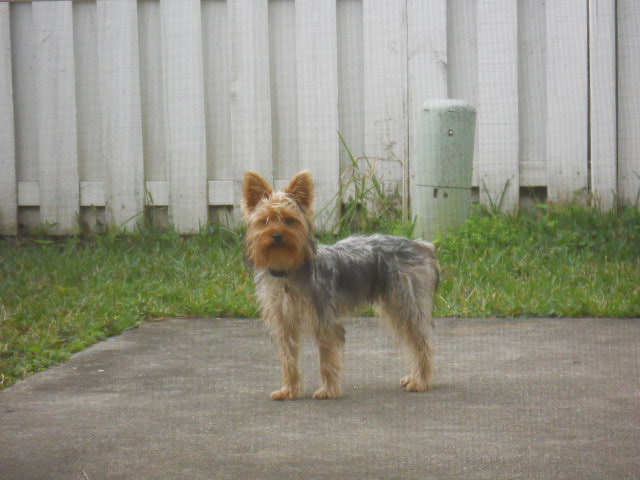 agressive silky terrier
Question
Lucas 1 year old
Hi Jennifer:
I have a
agressive silky terrier
Question
Lucas 1 year old
Hi Jennifer:
I have a
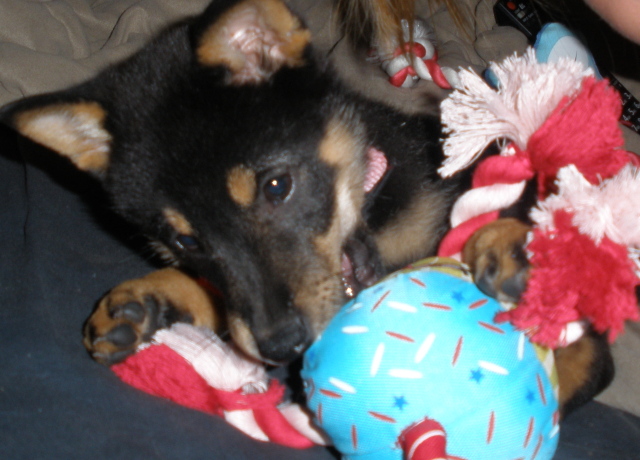 My Shiba Inu
Question
Lola
I bought a registered Shiba Inu puppy fro
My Shiba Inu
Question
Lola
I bought a registered Shiba Inu puppy fro
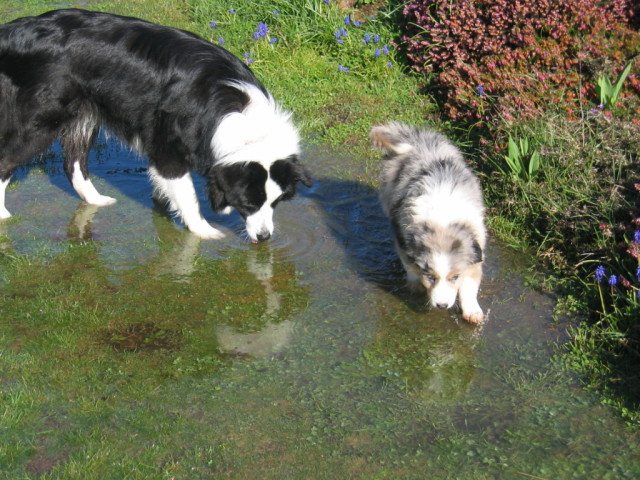 Dog in Heat?
QuestionLily and Jorge
QUESTION: Hello,
We have
Dog in Heat?
QuestionLily and Jorge
QUESTION: Hello,
We have
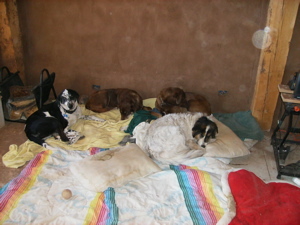 Sudden aggression within pack after a death
Question
Sudden aggression in o
We have an approximatel
Sudden aggression within pack after a death
Question
Sudden aggression in o
We have an approximatel
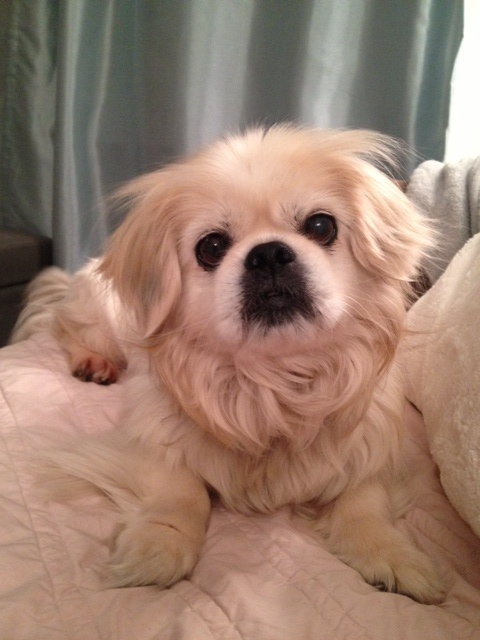 Nightmares?
Question
Beethoven
Hi Melissa, Ive had my very h
Nightmares?
Question
Beethoven
Hi Melissa, Ive had my very h